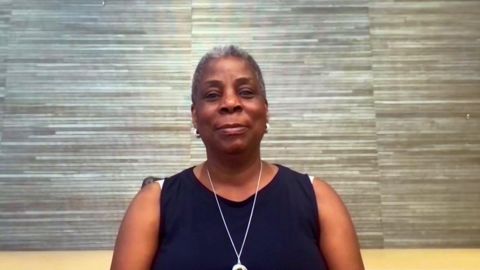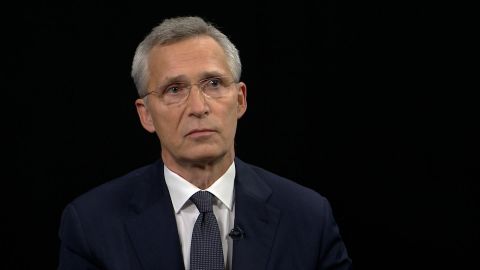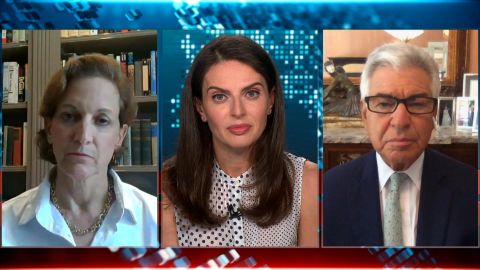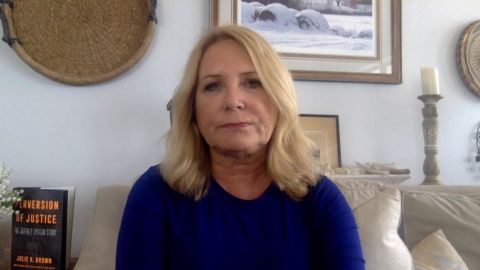Read Transcript EXPAND
JENS STOLTENBERG, NATO SECRETARY-GENERAL: So, I was in my house preparing the speech I was going to deliver at (INAUDIBLE) the day after. And then, while I was working there, one of my adviser came into my office in my house and told me there has been a big explosion. And I actually heard, because my house is not far from the government building. And that day, the terrorist attack started with an explosion. A bomb went off outside my office in the government square.
UNIDENTIFIED MALE: A witness says there hasn’t been an explosion like this in Norway since World War II. A massive midday blast shakes the center of government power in Oslo.
STOLTENBERG: And then I remember the guards came in, and they told me that: The government building, your office, has been attacked, so we have to take you down into safe room in the basement, because when the prime minister’s office is attacked, of course, there may be a second attack against the — your house, your residence. So, I remember I didn’t want to go down there, but the guards were very convincing. We went down there. And then, after a couple of hours, we started to get text messages about another attack. And that was against the island Utoya.
UNIDENTIFIED FEMALE: Reports say a man dressed as a police officer opened fire shortly after the blast in the Capitol, and that a number of people were injured.
FREDERIK PLEITGEN, CNN CORRESPONDENT: When did you realize just how bad things were? Because, I mean, I remember also, as that day unfolded, we heard about the explosion. But then it was — it took a while to actually comprehend that he had gone to Utoya Island and had started just massacring people there.
STOLTENBERG: There was no way we knew about Utoya when the government building was attacked earlier the same day. I received messages from people at Utoya because they were friends of mine. And they texted me. And they told me there is someone shooting and killing people at Utoya. And after just a few minutes, I was informed via text message that the woman that was actually running the summer camp out there with a lot of young people, she was killed. Her name is Monica. I have known her for many, many years. She was called Mother Utoya. She was running the whole island, the camp. And then, when I realized that Monica was killed, then I realized that this was real, and the violence, the terrorism got a face, the face of Monica.
PLEITGEN: And, as you said, I mean, this hit close to home. How does one react as, on the one hand, the prime minister who’s obviously in charge of keeping people safe, but also on a personal level?
STOLTENBERG: The 22nd of July in Norway is first and foremost about all the people that were killed and those who lost their loved ones. But, of course, it also affected all of us and also me.
About This Episode EXPAND
Richard Ben-Veniste; Anne Applebaum; Julie Brown; Jens Stoltenberg; Ursula Burns
LEARN MORE



